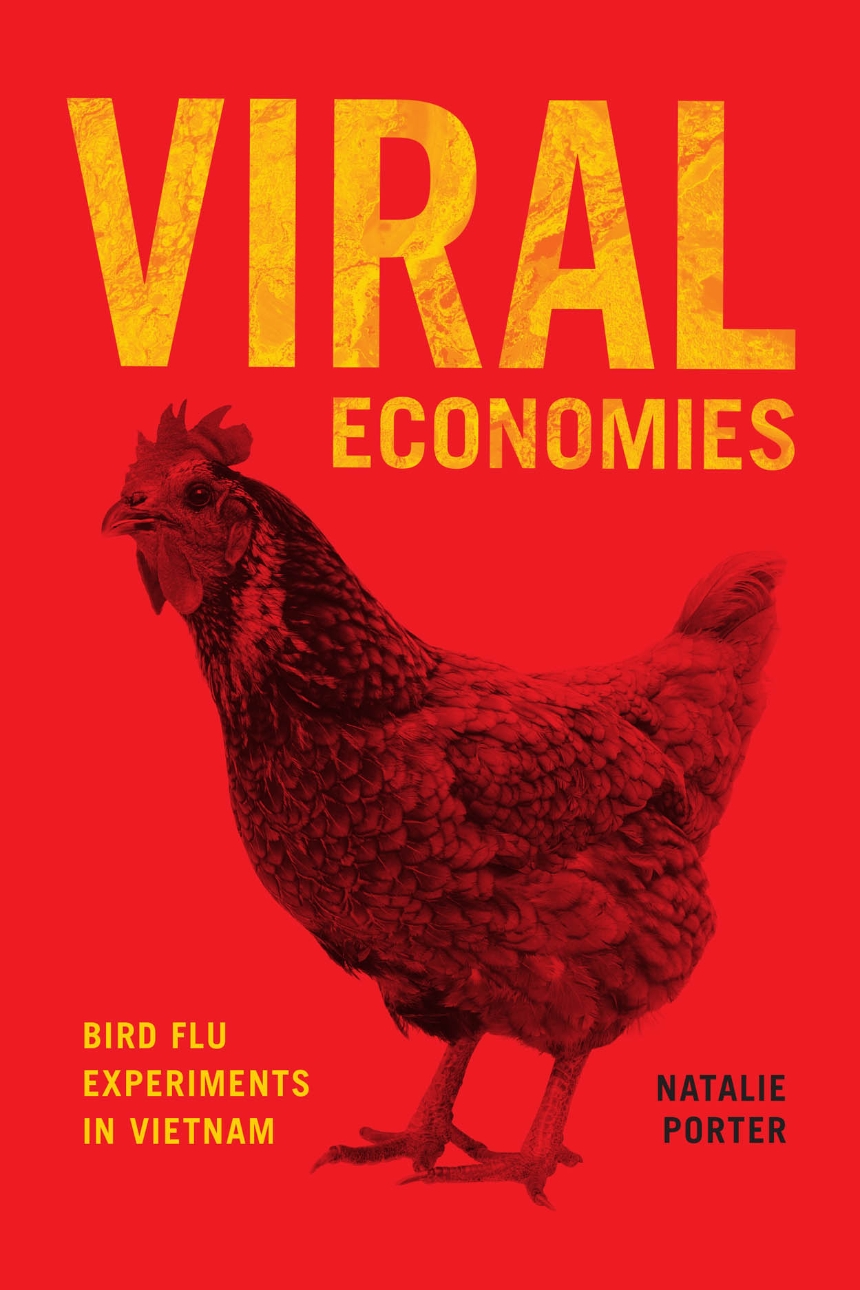Viral Economies
Bird Flu Experiments in Vietnam
Over the last decade, infectious disease outbreaks have heightened fears of a catastrophic pandemic passing from animals to humans. From Ebola and bird flu to swine flu and MERS, zoonotic viruses are killing animals and wreaking havoc on the people living near them. Given this clear correlation between animals and viral infection, why are animals largely invisible in social science accounts of pandemics, and why do they remain marginal in critiques of global public health?
In Viral Economies, Natalie Porter draws from long-term research on bird flu in Vietnam to chart the pathways of scientists, NGO workers, state veterinarians, and poultry farmers as they define and address pandemic risks. Porter argues that as global health programs expand their purview to include life and livestock, they weigh the interests of public health against those of commercial agriculture, rural tradition, and scientific innovation. Porter challenges human-centered analyses of pandemics and shows how dynamic and often dangerous human-animal relations take on global significance as poultry and their pathogens travel through global livestock economies and transnational health networks. Viral Economies urges readers to think critically about the ideas, relationships, and practices that produce our everyday commodities, and that shape how we determine the value of life—both human and nonhuman.
In Viral Economies, Natalie Porter draws from long-term research on bird flu in Vietnam to chart the pathways of scientists, NGO workers, state veterinarians, and poultry farmers as they define and address pandemic risks. Porter argues that as global health programs expand their purview to include life and livestock, they weigh the interests of public health against those of commercial agriculture, rural tradition, and scientific innovation. Porter challenges human-centered analyses of pandemics and shows how dynamic and often dangerous human-animal relations take on global significance as poultry and their pathogens travel through global livestock economies and transnational health networks. Viral Economies urges readers to think critically about the ideas, relationships, and practices that produce our everyday commodities, and that shape how we determine the value of life—both human and nonhuman.
240 pages | 15 halftones | 6 x 9 | © 2019
Anthropology: Cultural and Social Anthropology
Asian Studies: Southeast Asia and Australia
Sociology: Medical Sociology
